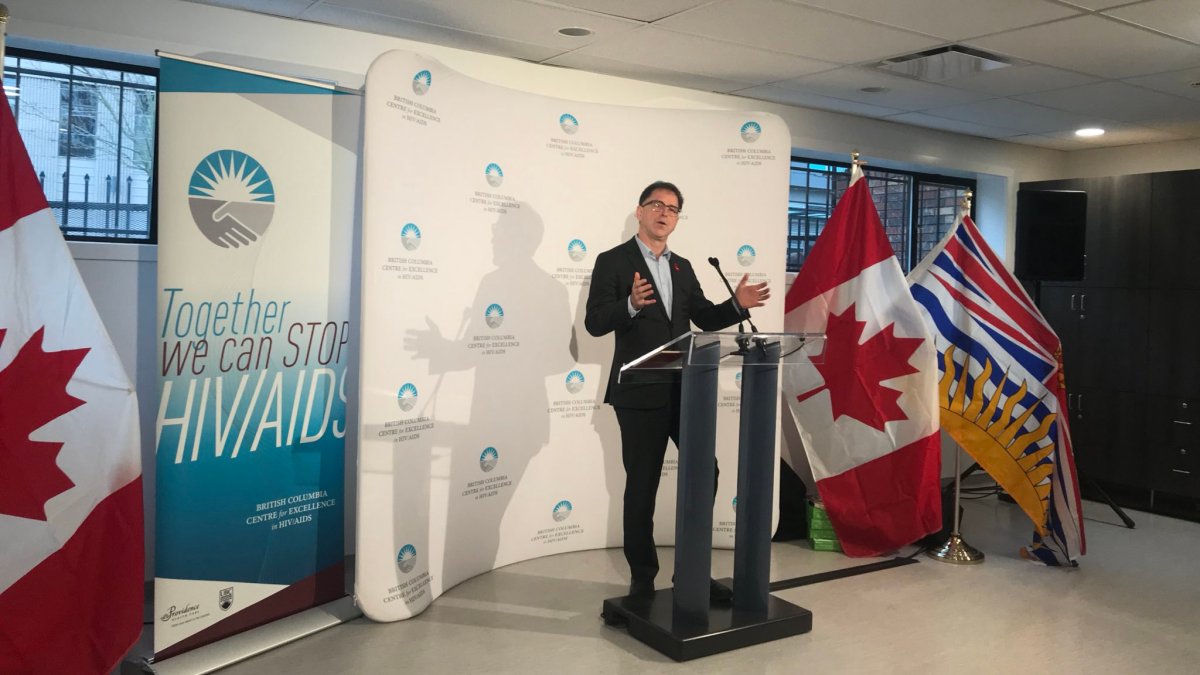B.C.’s health ministry used Sunday’s World AIDS Day to announce the number of new annual HIV cases has fallen to a record low in the province.

Health Minister Adrian Dix made the announcement at the opening of a new research laboratory in Vancouver’s Downtown Eastside dedicated to combating and eventually eliminating the deadly virus, which will be managed by the BC Centre for Excellence in HIV/AIDS (BCCfE).
“We are now at a moment in B.C. history where we can say the HIV/AIDS crisis has transitioned from an epidemic to chronic disease management,” Dix said.
According to the province, 2018 saw just 208 new diagnoses of HIV, the latest in a steady decline from 437 cases in 2004.
At the height of the AIDS crisis in the late 1980s and early ’90s, close to 850 cases were being reported annually, Dix said.
An estimated 7,271 British Columbians are currently living with HIV, the province noted in a statement.
B.C.’s provincial health officer Dr. Bonnie Henry said the province has made “incredible progress” in the fight against HIV and AIDS since the turn of the century.

She gave special credit to Dr. Julio Montaner, executive director and physician-in-chief at the BCCfE, and his team for their work in reducing the impacts “of what was once a death sentence.”
“This work has been crucial to the progress of not only our provincial efforts, but efforts around the world to end HIV and AIDS,” Henry said.
The health ministry points to the province’s treatment as prevention strategy, nicknamed TasP, that was created by the team at the BCCfE.
The strategy, which focuses on making antiretroviral therapy widely available to patients, has since been adopted by China, Brazil, Panama and other countries in their own fights against HIV and AIDS, according to the province.
“Some of the early steps we took to control HIV/AIDS were regarded as controversial back in the day,” Montaner said at the research lab opening.
“Through focus, perseverance and dedicated efforts, building the evidence that was needed, we’ve been able to conquer the world.”

The government expanded public funding for pre- and post-exposure prophylaxis medication on Jan. 1, 2018.
As a result, about 4,500 people at high-risk for contracting an infection have qualified for the potentially life-saving treatment, it says.
The number is up from 2,000 in June 2018 and 3,300 this past March.
“Our government is committed to advancing the fight against this disease as we increase support for communities and people affected,” Premier John Horgan says in a statement to mark World AIDS Day.
“Breakthroughs in treatment and prevention, along with education, awareness, community work and fighting stigma, have contributed to huge advancements toward the elimination of this epidemic.”




Comments